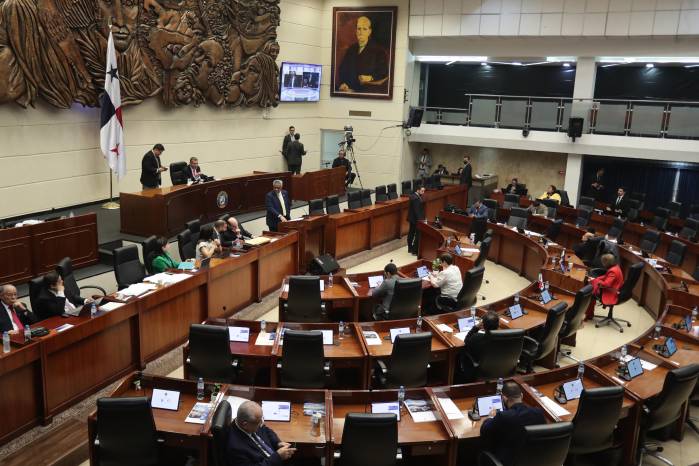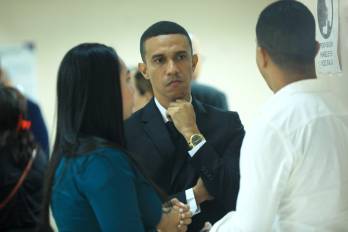Durante su paso por Panamá, el trío conversó con La Estrella de Panamá sobre su evolución artística y el significado profundo que encierra su nombre y...
- 18/04/2009 02:00
The evening before writing this column, I was taken on a visual trip back into the dark days of Panama’s history under the 20 year military dictatorship. The documentary Centavos de la Dignidad was narrated by independent mayoralty candidate, lawyer and university professor, Miguel Antonio Bernal , a victim of the times, beaten, exiled, and narrowly escaping with his life.
It was a sharp reminder of how recent the events were and how so many who were involved in regimes that led to “disappearances”, beatings, tortures, media suppression still walk the streets of Panama.
Some sit in high government positions, others may be seen in restaurants and at social gatherings, many still feathering their nests in serving what they like to call democracy.
This sharply contrasts with a vision propagated by the “Panama the beautiful” chorus, as reflected in an article by a reader on another page. He writes: “Its history, culture and traditions – all of which are incredibly fascinating and so pleasurable to discover.”
When I taught history, I told my students that history was not something remote, a list of dates in a boring textbook ? it was part of their lives, and they were linked to distant events like the new leaves on an oak were linked to its roots hundreds of years before.
In Panama, as the documentary so clearly showed, some of some rotten leaves are sitting on the same branch, and perhaps being fed better nutrients than those around them.
Bernal, a forceful opponent of the dictatorship who had first taken to the streets to protest the harboring of the reviled Shah of Iran, continued his campaign of words and action throughout the dark years, but he was against the invasion of Panama by “foreign” forces, believing that the solution to the problems had to be Panamanian. In the years since 1989 he has continued to condemn corruption, nepotism and what he sees as misgovernment, right through to the present election campaign.
Others prefer to forget.
LITTLE PLEASURE. Not all history is pleasurable to discover. The recent release of documents outlining CIA torture techniques in the Bush era, and the crimes committed as the American “Empire” expanded after the Spanish American war give little cause for joy.
James Morris ’s masterful three volume history of the British empire, which once covered a quarter of the world’s surface, is full of dark pages of massacres in India and Africa, and the ruthless extermination of Tasmania’s indigenous population. It is lightened by references to Britain’s campaign to abolish slavery, and the introduction of lasting empire wide judicial system, but the reading of unvarnished history is not for the faint of heart.
No “empire” builders have succeeded without the sword or gun. King Leopold ’s rubber farm, the Belgian Congo, led to the deaths of 10 million and the amputation of arms of millions more.
In southern Africa the German’s drove tribes into the desert to die. US marines slaughtered thousands of Filipinos, and the government supported dictatorships throughout their Latin American back yard.
History is not to be taken lightly. Study it, or repeat it. Panama’s bloody history was only last night, and when dawn came many of the perpetrators walked free on same streets as the victims.
FOOTNOTES. The title of the movie comes from an episode when as a radio broadcaster, Bernal was fined $1000 by the follow-along judiciary. He called upon listeners to contribute their pennies. Contributions flocked in and he delivered the fine in a barrow full of centavos.
Mayoral candidate Bosco Valarino , who called upon citizens to welcome the invaders in 1989, was not among those who went to the showing of the documentary at the Extreme Planet. Former vice-president Billy Ford was, along with Star contributor Richard Koster who lived through, and wrote extensively about, the dictatorship. He and Ruben Dario Carles , Alberto Almanza , Alberto Quiros Guardia , and Otilia Tejeira were featured in the movie.
A free copy of the DVD awaits the first reader to e-mail me. It‘s in Spanish, but the graphics vividly tell the story.

















